 During a session on banned books during last week's New Voices, New Rooms virtual conference, ABFE executive director David Grogan noted that during his time with the organization it's "never gone a month without fighting a ban," but the increase in book challenges and bans over the past year has been "frankly alarming." In particular, what has really escalated is the challenging of books by authors from marginalized groups, and while these challenges are going on all over the country, he pointed to efforts in Virginia Beach, Va., and in Utah as particularly troubling.
During a session on banned books during last week's New Voices, New Rooms virtual conference, ABFE executive director David Grogan noted that during his time with the organization it's "never gone a month without fighting a ban," but the increase in book challenges and bans over the past year has been "frankly alarming." In particular, what has really escalated is the challenging of books by authors from marginalized groups, and while these challenges are going on all over the country, he pointed to efforts in Virginia Beach, Va., and in Utah as particularly troubling.
Grogan served as moderator for the discussion, which also included middle grade and YA author Amy Sarig King (Attack of the Black Rectangles) and Sam Droke-Dickinson, co-owner of Aaron's Books in Lititz, Pa. Lititz, where both King and Droke-Dickinson live, is not far from the Central York School District, where last year local students helped overturn a wide-ranging book ban. Droke-Dickinson was running for the school board at the time, and in her capacity as a bookseller reached out to the protesting students and to other candidates. She worked with them to do a book drive and get the banned books "into the hands of children."
Elaborating on the book banning surge, Droke-Dickinson said it's not exclusive to "super conservative areas." It is "everywhere and gaining ground," and she suggested that if anyone wanted to "not sleep tonight," they could go to the website of Moms for Liberty and see how widespread it is. She emphasized the point that as citizens and booksellers, "you can help your community," and offered a number of practical suggestions.
The first point she mentioned was paying attention and taking the time to know what's going on at school board meetings. Booksellers could attend in person, stream board meetings if their district is offering that, or read the minutes of past meetings every month. Droke-Dickinson added that local newspapers can be valuable sources of information, along with teachers themselves.
Booksellers need to decide "how vocal and involved you want to be," as there can be real repercussions for speaking out. Taking a stand could result in a loss of school sales and customers, and "you're going to get Internet trolls no matter what." Booksellers should also be aware of their own mental health, with Droke-Dickinson mentioning that she actually stopped attending school board meetings after it became "too much."
Droke-Dickinson added that ABFE has templates for letters to school boards as well as responses to customers, and she has those templates saved on the store's computers so staff members can refer to them at any time. In-store displays of who is challenging a given book and why can be effective, and she said social media is "super important." The American Library Association's Instagram account posts a weekly report of the challenges sent to them, and Aaron's Books shares those on the store's account.
If a book is challenged or banned in your school district, Droke-Dickinson continued, "make sure you contact ABFE and the ALA." They will put it on their lists and "keep an eye on it," and if booksellers feel comfortable doing so they can speak at school board meetings about the bans and challenges. It can also be worth it to buy a few extra copies of those titles to place in Little Free Libraries or donate to teachers.
Droke-Dickinson raised the point that the people looking to ban and challenge books are starting to come up with new tactics, such as trying to change the processes school boards have for handling challenges, so that it's easier to challenge the same books "over and over again." Many are also trying to change the opt-out--allowing parents to have their child excluded from a specific assigned reading--to an opt-in, where every parent would have to essentially sign a permission slip allowing their child to read any book. The opt-in, she remarked, would add "hours and hours" more work for teachers, librarians and administrators, and is "bat sh-t crazy."
When it comes to resisting book bans, King said that empowering young people and students is one of the most effective things that anyone can do. Parents and other adults should show young people "what it is we have to do to fight for our actual rights," and she warned that underestimating a child is perhaps the biggest insult "you'll ever give them." King also has form letters available on her website that students can use to write to their school boards. Speaking about both her career as an author and her advocacy on behalf of teenagers, King said: "All I really want to do is remind them that they're important." --Alex Mutter
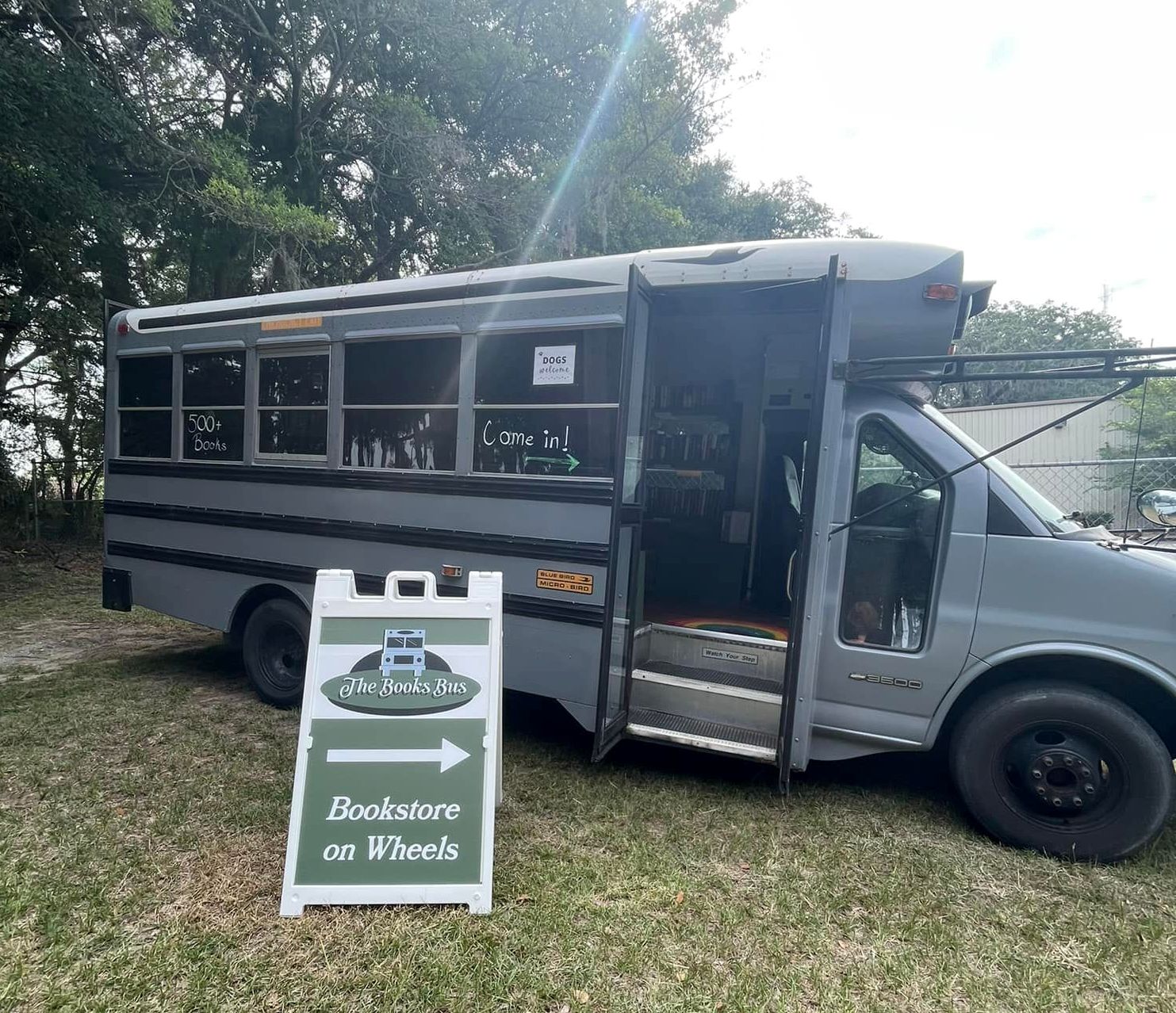
 The Books Bus, which Perry calls Betty, is built inside of a short school bus. Perry bought the bus in January and began converting it with the help of a Kickstarter campaign that raised a little over $3,000. It took a lot of trial and error to build custom shelves that fit the bus and kept books secure, and acquiring a business license for the bus also proved to be a time-consuming challenge.
The Books Bus, which Perry calls Betty, is built inside of a short school bus. Perry bought the bus in January and began converting it with the help of a Kickstarter campaign that raised a little over $3,000. It took a lot of trial and error to build custom shelves that fit the bus and kept books secure, and acquiring a business license for the bus also proved to be a time-consuming challenge.






SHELFAWARENESS.1222.T1.BESTADSWEBINAR.gif)
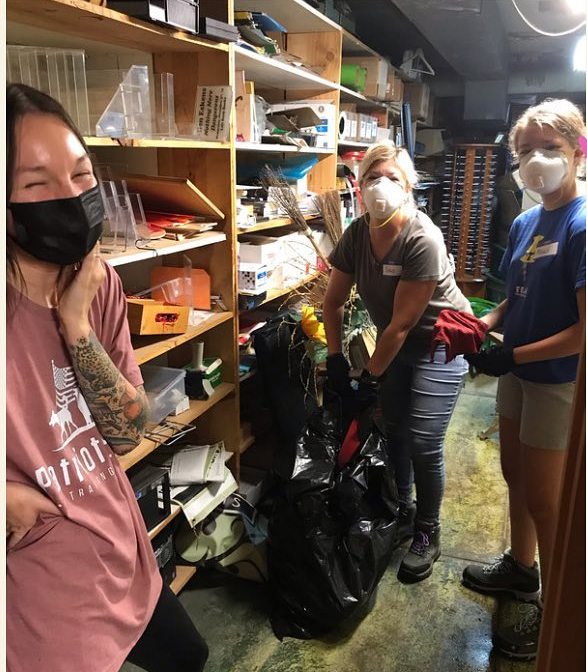
 During a session on banned books during last week's New Voices, New Rooms virtual conference, ABFE executive director David Grogan noted that during his time with the organization it's "never gone a month without fighting a ban," but the increase in book challenges and bans over the past year has been "frankly alarming." In particular, what has really escalated is the challenging of books by authors from marginalized groups, and while these challenges are going on all over the country, he pointed to efforts in Virginia Beach, Va., and in Utah as particularly troubling.
During a session on banned books during last week's New Voices, New Rooms virtual conference, ABFE executive director David Grogan noted that during his time with the organization it's "never gone a month without fighting a ban," but the increase in book challenges and bans over the past year has been "frankly alarming." In particular, what has really escalated is the challenging of books by authors from marginalized groups, and while these challenges are going on all over the country, he pointed to efforts in Virginia Beach, Va., and in Utah as particularly troubling.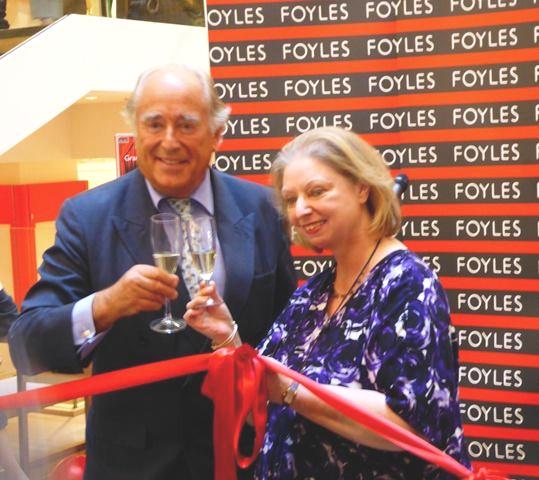
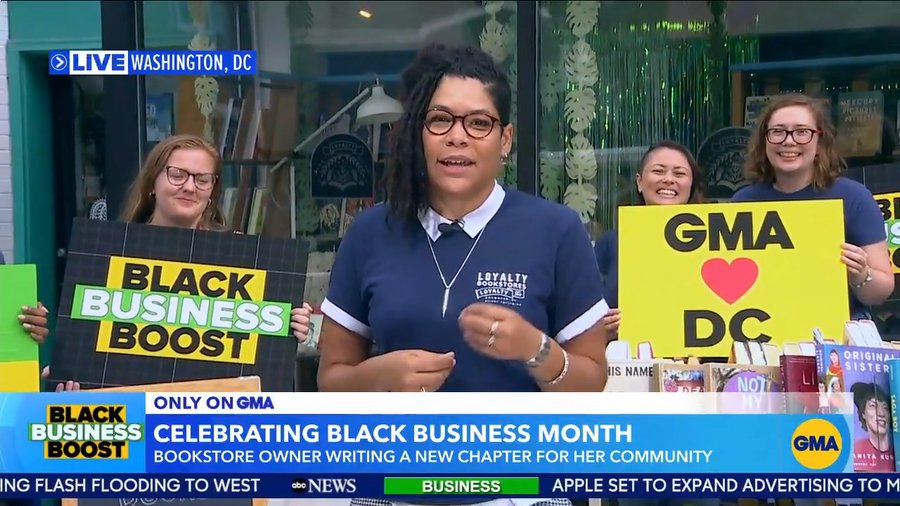
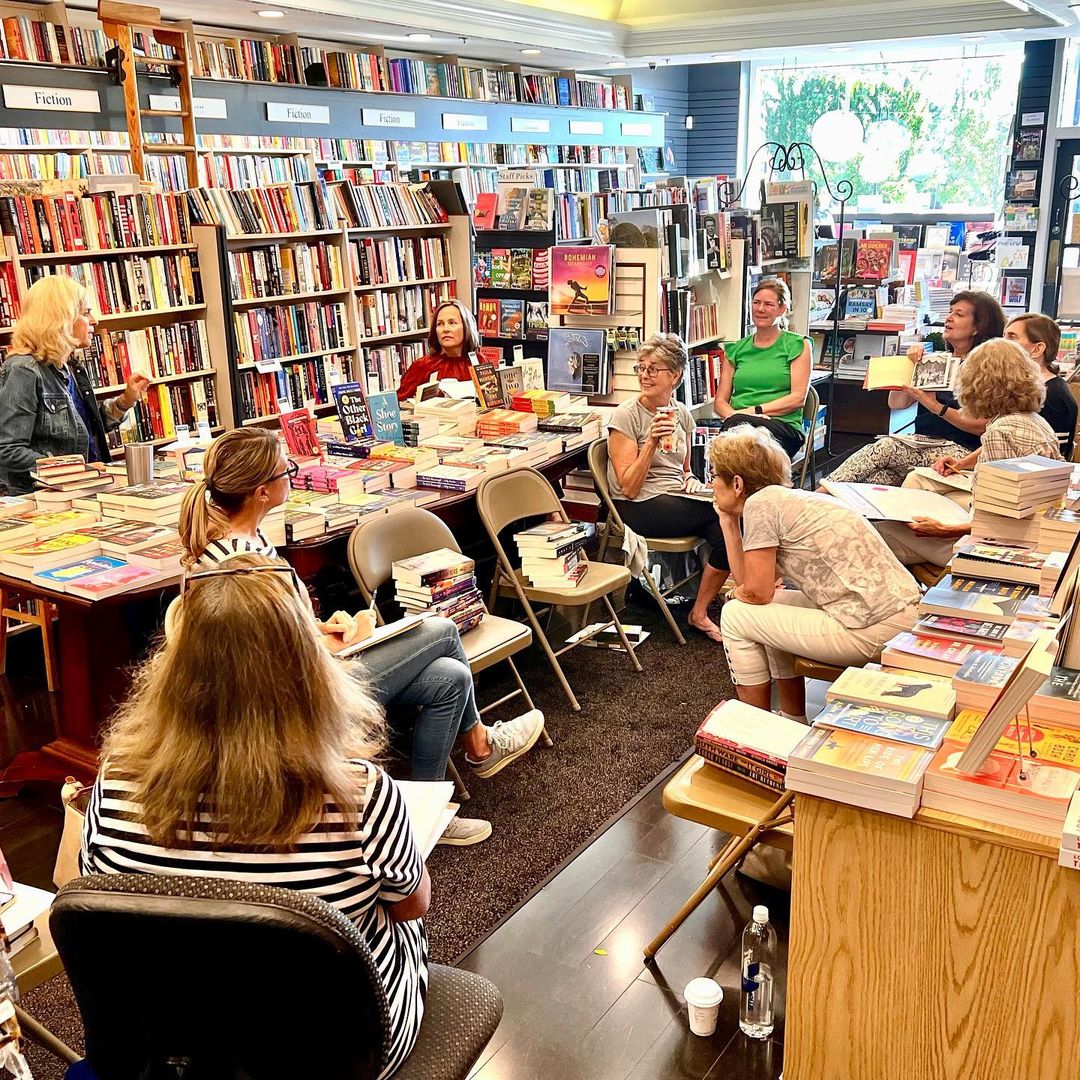 Posted on Instagram by
Posted on Instagram by 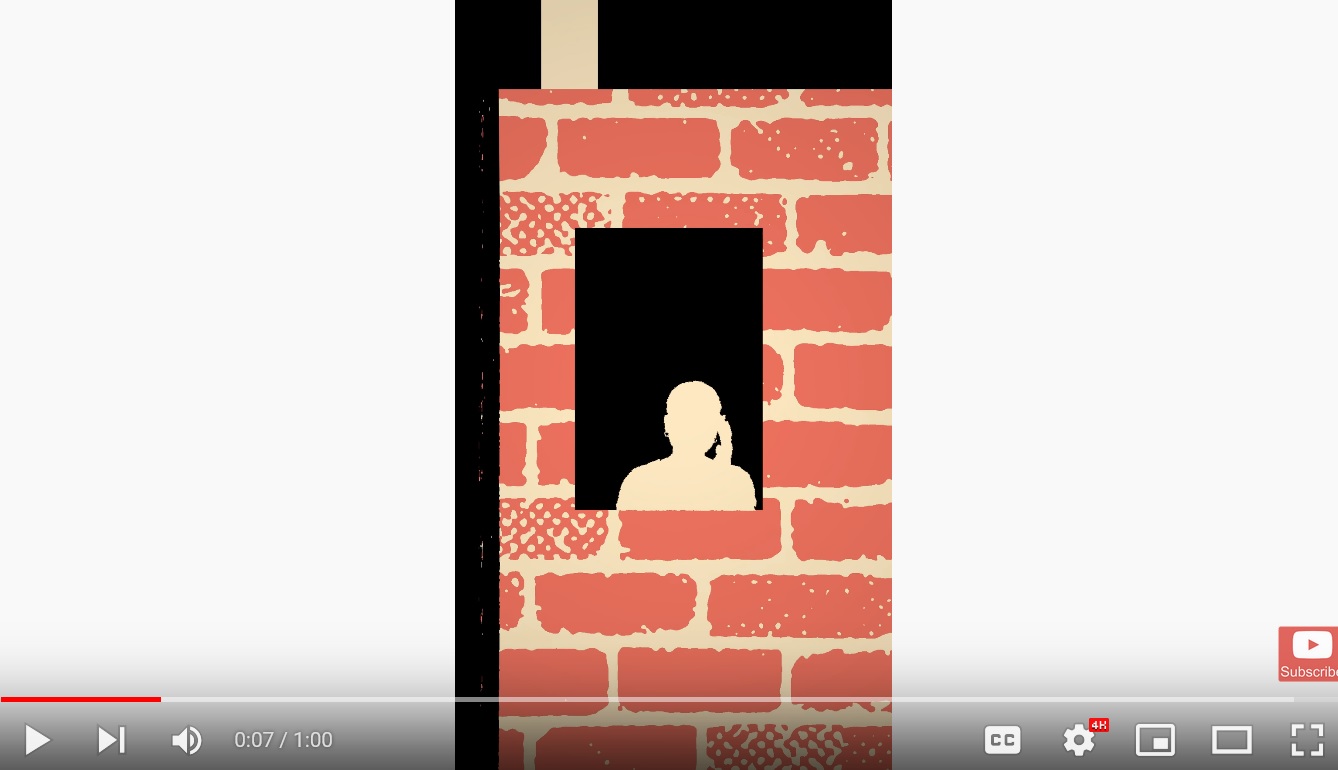 Stories from the Tenants Downstairs
Stories from the Tenants Downstairs Heidi Sopinka's Utopia opens at a party with the first-person perspective of Romy, a performance artist, directly addressing her months-old daughter. The evening ends with an unexplained tragedy, and from there the novel jumps forward some months to follow a young woman named Paz, who is now raising Romy's baby and is married to Romy's husband, Billy. It is 1978, and Paz, Billy and all their friends are steeped in the Los Angeles art scene, where sex, drugs and free expression are soured by competition, infighting and wildly different rules for male and female artists. Paz attends women's groups and wishes for a freer life for herself, but many women see her as having taken over Romy's life in decidedly unfeminist fashion. Romy, the more successful and established artist, casts a long shadow; Paz loves Billy but is perhaps more in love with Romy, whose life and art obsess her. Caring for Romy's baby, lost in reading Romy's journals, Paz finds herself in something of a love triangle with a ghost, and begins to lose grasp of her own life and art. And then a postcard arrives, apparently from Romy. It is labeled "disappearance piece."
Heidi Sopinka's Utopia opens at a party with the first-person perspective of Romy, a performance artist, directly addressing her months-old daughter. The evening ends with an unexplained tragedy, and from there the novel jumps forward some months to follow a young woman named Paz, who is now raising Romy's baby and is married to Romy's husband, Billy. It is 1978, and Paz, Billy and all their friends are steeped in the Los Angeles art scene, where sex, drugs and free expression are soured by competition, infighting and wildly different rules for male and female artists. Paz attends women's groups and wishes for a freer life for herself, but many women see her as having taken over Romy's life in decidedly unfeminist fashion. Romy, the more successful and established artist, casts a long shadow; Paz loves Billy but is perhaps more in love with Romy, whose life and art obsess her. Caring for Romy's baby, lost in reading Romy's journals, Paz finds herself in something of a love triangle with a ghost, and begins to lose grasp of her own life and art. And then a postcard arrives, apparently from Romy. It is labeled "disappearance piece."